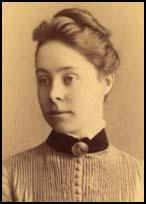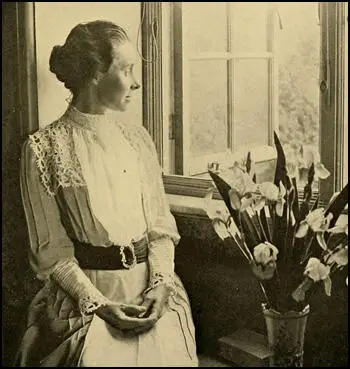Philippa Fawcett

Philippa Garrett Fawcett, the daughter of Millicent Garrett Fawcett and Henry Fawcett, was born in London on 4th April 1868. According to her biographer, Rita McWilliams Tullberg: "Philippa Fawcett's political and intellectual inheritance was formidable. Both her parents were active in the movement for the higher education of women. Not yet two years old, she reportedly toddled among the group of senior academics and their wives meeting in her parents' drawing-room in Cambridge in 1869 to plan the scheme of lectures for women that led, in time, to the foundation of Newnham College."
Philippa attended Clapham High School. Her teachers were very impressed with her abilities as a mathematician and at fifteen it was arranged for her to receive coaching from George Barnes Atkinson of Trinity Hall College. From 1885 to 1887 she attended courses at University College, in pure and applied mathematics and mechanics, and she also studied chemistry at Bedford College before being awarded a Winkworth scholarship to study mathematics at Newnham College.
In June 1890, Philippa Fawcett became the first woman to score the highest mark of all the candidates for the Mathematical Tripos at the University of Cambridge. This news produced a great deal of excitement at Newnham, and was widely reported in the national press. The following year she sat part two of the tripos, which was considered to demand more originality and ingenuity of candidates. Once again she showed her talent by being placed, together with Geoffrey Thomas Bennett, the male senior wrangler of her year, alone in the first class. As Rita McWilliams Tullberg points out: "Bennett was made a fellow of St John's College, awarded the university prize for mathematics, and lectured for the university. Fawcett was not eligible for any such lucrative posts or prizes."

In 1901 Millicent Garrett Fawcett headed a government commission of women inquiring into conditions in British concentration camps in South Africa. She took her daughter on the trip and the following year she return to the Transvaal to help establish the school system there. This included training mathematics teachers in Johannesburg.
Philippa Fawcett returned to England in 1905 to take up the post of principal assistant in Education Department of the London County Council (LCC). She became responsible for existing secondary schools and developed new ones established under the 1902 Education Act.
A member of the National Union of Women's Suffrage Societies, Fawcett was involved in the struggle for the enfranchisement of women. In her autobiography, Mary Sheepshanks writes about how she went with Fawcett to speak in Bicester: "While we were out at a meeting some young men, sons of neighbouring squires, broke into our bed-rooms and made hay of them. A few days later I had friends to dinner in London, including Joseph Wedgewood, who had previously rescued me and a friend from an angry election crowd in the Potteries. He took up the matter in the House of Commons, and the Home Secretary undertook to look into it... The father of one of the young men offered an apology - provided I would not say I had received one."
As a public servant, Fawcett generally kept a low profile during the suffrage campaign. After the First World War she was a prominent supporter of the League of Nations Union. She was also active in the London and National Society for Women's Service (renamed the Fawcett Society in 1953).
Philippa Fawcett died in London on 10th June 1948.

